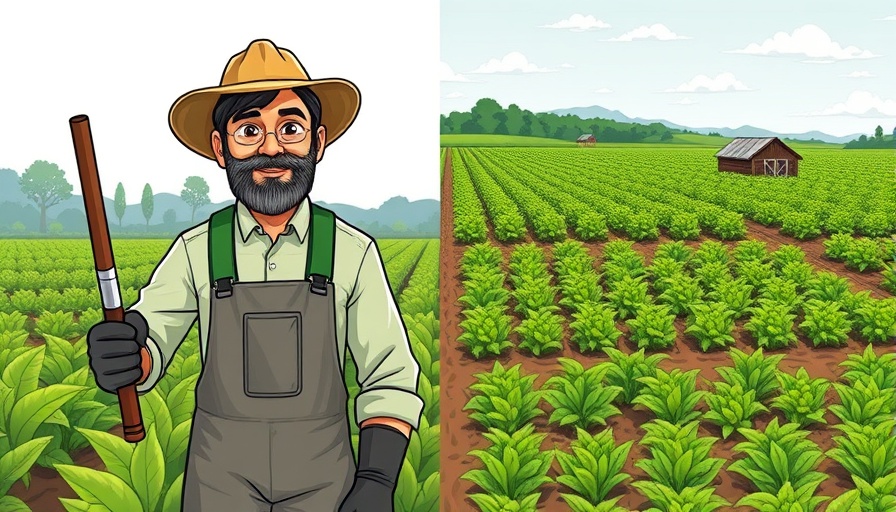
Chemical Farming vs. Organic Farming: A Deeper Look at the Impact on Health and Environment
In recent years, the conversation around farming practices has evolved, with a growing interest in understanding how these practices affect our health and the environment. At the forefront are two contrasting methods: chemical farming and organic farming. While chemical farming remains the most common approach to agriculture worldwide, organic farming is gaining traction for its sustainable practices and potential benefits to human health. This article explores the significant differences between these methods, focusing on their respective impacts on health and the environment.
The Dangers of Chemical Farming
Chemical farming heavily relies on synthetic agrochemicals, which are employed to protect crops from pests and diseases. However, these pesticides—such as insecticides, fungicides, and herbicides—pose severe risks to both our health and the environment. One particularly concerning chemical is Paraquat, a herbicide banned in many countries due to its link to Parkinson’s disease. A mere sip can be fatal, yet its use persists in the US, raising questions about agricultural safety standards.
Moreover, studies indicate that pesticide application can lead to harmful airborne residues, impacting nearby communities. A study in the American Journal of Epidemiology found that living within 500 meters of fields sprayed with Paraquat can increase Parkinson’s disease risk by 75%.
The Hidden Health Risks of Pesticides
The ramifications of pesticide exposure can be acute or chronic, manifesting as immediate issues like nausea, dizziness, and skin rashes, or long-term consequences such as cancers, reproductive harm, and disruptions to the endocrine system. The residual presence of pesticides on food and in water further compounds these dangers, necessitating vigilant monitoring and assessment of our food sources.
Organic Farming: A Healthier Alternative?
In stark contrast to chemical farming, organic farming employs natural methods to cultivate crops, ultimately benefiting both human health and the planet. Organic practices avoid harmful synthetic pesticides and fertilizers, which can lead to healthier produce and cleaner ecosystems. Organic farms enhance biodiversity, promote healthy soil, and often yield better-quality food, free from toxic residues.
Moreover, organic farming practices encourage sustainable agriculture—working in harmony with nature rather than against it. Techniques such as crop rotation, cover cropping, and composting not only improve soil health but also support community gardening initiatives, providing fresh produce free from harmful chemicals.
Urban Farming: Transforming Communities
Urban farming is another promising avenue within sustainable practices, with initiatives like rooftop gardens and community gardens proliferating in many cities. This movement not only increases access to fresh produce but also fosters community connections. It allows individuals to participate actively in their food systems, cultivating their own gardens and learning sustainable practices, including hydroponics and vertical gardening.
The Need for Change and Consumer Awareness
As consumers become increasingly aware of the impact of their food choices on health and the environment, the demand for organic products rises. By opting for organic produce, not only do consumers support farmers dedicated to improving soil and environmental health, but they also safeguard their own well-being and that of their families. As more people engage in DIY urban farming, they can cultivate healthier lifestyles and communities.
Conclusion
The profound implications of our agricultural choices underscore the need for greater awareness and action regarding food production practices. The contrast between chemical farming and organic farming reveals that healthier, sustainable food systems are not just beneficial but essential. As we continue to explore ways to minimize our ecological footprint, adopting organic practices and participating in urban farming can empower us all. Start your journey towards a more sustainable future by incorporating organic principles into your gardening endeavors today!
 Add Row
Add Row  Add
Add 




 Add Row
Add Row  Add
Add 

Write A Comment